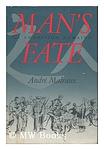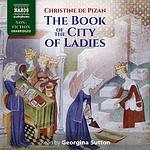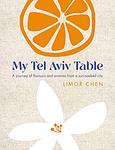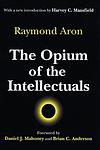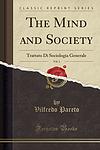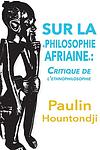The Greatest Italian, French "Political" Books of All Time
Click to learn how this list is calculated.
This list represents a comprehensive and trusted collection of the greatest books. Developed through a specialized algorithm, it brings together 300 'best of' book lists to form a definitive guide to the world's most acclaimed books. For those interested in how these books are chosen, additional details can be found on the rankings page.
Genres
The "Political" category of books encompasses works that explore the theory, practice, and history of government and politics. These books may cover topics such as political ideologies, political systems, political institutions, political movements, and political leaders. They may also examine the relationship between politics and other areas of society, such as economics, culture, and international relations. Political books can be both informative and thought-provoking, offering readers insights into the complexities of the political world and the challenges of governing in a democratic society.
Countries
Date Range
Reading Statistics
Click the button below to see how many of these books you've read!
Download
If you're interested in downloading this list as a CSV file for use in a spreadsheet application, you can easily do so by clicking the button below. Please note that to ensure a manageable file size and faster download, the CSV will include details for only the first 500 books.
Download-
1. The Prince by Niccolo Machiavelli
This classic work of political philosophy provides a pragmatic guide on political leadership and power, arguing that leaders must do whatever necessary to maintain authority and protect their states, even if it means compromising morality and ethics. The book explores various types of principalities, military affairs, the conduct of great leaders, and the virtues a prince should possess. It is known for its controversial thesis, which suggests that the ends justify the means in politics.
-
2. The Second Sex by Simone de Beauvoir
This influential work explores the treatment and perception of women throughout history, arguing that women have been repressed and defined only in relation to men. The author presents a detailed analysis of women's roles in society, family, work, and in the creation of their own identities. She discusses the concept of 'the other' and how this has been used to suppress women, while also examining the biological, psychological, and societal impacts of this oppression. The book is a seminal text in feminist theory, challenging traditional notions of femininity and calling for equality and freedom for women.
-
3. Democracy in America by Alexis de Tocqueville
This influential book offers an in-depth analysis of the strengths and weaknesses of 19th century American democracy. The author, a French political thinker, provides a detailed examination of the democratic process and its impact on society, politics, and the economy. The work highlights the importance of civil society, local institutions, and the spirit of equality in ensuring the stability of democracy. It also delves into the dangers of majority tyranny, the potential for democratic despotism, and the critical role of religion and morality in sustaining a democratic nation.
-
4. Man's Fate by Andre Malraux
Set in 1920s Shanghai during a time of political upheaval, the novel explores the existential themes of life, death, and the human condition through the experiences of a group of revolutionaries. The narrative follows their struggles and sacrifices for their cause, the Communist revolution, and their inevitable confrontation with their own mortality and the harsh realities of life. The book delves into the complexities of political ideologies, human relationships and the constant struggle between hope and despair.
-
5. The Social Contract by Jean-Jacques Rousseau
"The Social Contract" is a philosophical work that discusses the concepts of sovereignty and the social contract. The author argues that all men are born free, but everywhere they are in chains, suggesting that society and its rules are a form of enslavement. However, he also posits that a social contract, where individuals come together to form a collective or a society, is necessary for the preservation of their freedom. This contract allows for the creation of a sovereign that is made up of the collective and expresses the general will, which is always right and tends towards the public utility.
-
6. The Mandarins by Simone de Beauvoir
"The Mandarins" is a novel that explores the personal and political lives of a group of intellectuals in post-World War II France. The narrative delves into their struggles with ethical dilemmas, political ideologies, and personal relationships in a rapidly changing world. The book is known for its exploration of existentialism and feminism, providing a vivid portrayal of the human condition and the complexities of freedom.
-
7. The Book of the City of Ladies by Christine De Pizan
"The Book of the City of Ladies" is a classical work in which the author, through allegorical characters, builds an imaginary city for women to illustrate their significant contributions to society. The book is a defense of women, arguing against the popular notion of the time that women were inferior to men. It showcases the author's deep knowledge of the past, referencing numerous notable women from history and mythology, emphasizing their virtues, intelligence, and moral fiber.
-
8. The Case of Comrade Tulayev by Victor Serge
"The Case of Comrade Tulayev" is a political novel set in the Stalinist era of the Soviet Union. The story begins with the murder of a high-ranking Soviet official, Comrade Tulayev, which sets off a series of events leading to the arrest and execution of innocent people. It provides an in-depth exploration of the paranoia, fear, and injustice that characterized Stalin's regime, showing the human cost of political purges and the absurdity of the bureaucratic system.
-
9. Discipline and Punish by Michel Foucault
This book delves into the historical evolution of the penal system, examining how Western societies have transitioned from a regime of violent, public physical punishment to a more subtle form of surveillance and control. It introduces the concept of the "panopticon," a metaphor for modern disciplinary societies that exercise power through observation and normalization rather than through overt physical coercion. The work explores the relationship between power, knowledge, and social control, arguing that disciplinary mechanisms are embedded in various institutions, such as schools, hospitals, and prisons, shaping individuals and maintaining order in society.
-
10. Émile by Jean-Jacques Rousseau
The book in question is a seminal work in the field of education and philosophy, presenting a comprehensive treatise on the nature of man and the importance of education tailored to the individual's developmental stages. The author argues for a system of education that allows for the natural development of a child's abilities and senses, advocating for learning through experience rather than traditional academic instruction. The narrative follows the growth of a fictional boy, illustrating the author's educational philosophy through his upbringing, which emphasizes moral and emotional development alongside intellectual growth. The work challenges conventional notions of education and has had a profound impact on modern educational theory.
-
11. The Rebel by Albert Camus
"The Rebel" is a philosophical exploration of rebellion and revolution. It dissects the nature and origins of rebellion, arguing that it arises from a basic human refusal to accept injustice. The book delves into the many forms rebellion can take, from personal revolt to political revolution, and examines the consequences and ethics of each. The author also critically evaluates the rebellious attitudes of various historical figures and movements, highlighting the potential for rebellion to either affirm or destroy human dignity.
-
12. A Violent Life by Pier Paolo Pasolini
"A Violent Life" explores the journey of a young man from the slums of Rome who becomes entangled in the world of crime. As he navigates through this violent and chaotic life, he is confronted with the harsh realities of poverty, injustice, and the struggle for survival. The narrative provides a stark and unflinching examination of the underbelly of Italian society, revealing the deep-seated corruption and systemic inequality that pervades it. The protagonist's life is a testament to the destructive cycle of violence and despair that traps the marginalized and underprivileged.
-
13. Prison Notebooks by Antonio Gramsci
The book in question is a collection of intellectual and critical writings composed by an influential Marxist thinker while incarcerated by a Fascist regime. These notebooks delve into a wide array of subjects, including political theory, sociology, critical theory, and cultural analysis. Central to the work is the concept of cultural hegemony, which explores how state power and societal norms are maintained not just through force but also through cultural institutions and practices that shape public consciousness. The author's reflections on power, class, and ideology have had a profound impact on contemporary political and social thought, offering a nuanced understanding of the superstructures that govern societal dynamics and the potential for transformative change.
-
14. The City Of The Sun by Tommaso Campanella
"The City of the Sun" is a philosophical work that presents a visionary society where goods, women, and children are held in common. It describes a utopian city governed by a theocratic and philosophical elite, where the inhabitants live harmoniously, dedicating their lives to knowledge, virtue, and the collective well-being. The city is structured with concentric walls adorned with scientific and artistic knowledge, reflecting the society's dedication to intellectual enlightenment and the eradication of ignorance and vice. The work serves as a critique of European society of the time, proposing a radical alternative that emphasizes communal living, education, and the blending of religion and science as the foundations of a just and prosperous community.
-
15. The Provincial Letters by Blaise Pascal
"The Provincial Letters" is a series of 18 letters written by a philosopher and mathematician, where he defends his friend Antoine Arnauld, an opponent of the Jesuits, who was on trial before the faculty of theology in Paris for his controversial religious works. The letters mockingly criticize the morals and ethics of Jesuits, and the casuistry they used to justify moral laxity, while also debating various philosophical and theological issues. The letters are considered a masterpiece of French prose and had a significant influence on the French language.
-
16. The Opium Of The Intellectuals by Raymond Aron
The book in question is a critical examination of the prevailing political ideologies and intellectual trends of the mid-20th century, particularly focusing on the seductive nature of Marxist thought among European intellectuals. The author argues that these intellectuals often embraced Marxism not for its empirical validity but as a secular religion, an "opium" that provided a comforting sense of certainty and moral superiority. The work challenges the dogmatic adherence to ideological orthodoxy and calls for a more skeptical, empirical approach to social and political analysis, advocating for the values of liberal democracy and the importance of individual freedom over utopian visions.
-
17. Days In The Caucasus by Banine
"Days In The Caucasus" is a captivating memoir that follows the personal journey of a young woman living in the Caucasus region during the early 20th century. The author beautifully recounts her experiences growing up in a multicultural society, filled with vivid descriptions of the diverse landscapes, traditions, and people she encounters. From her childhood adventures to her first love, the author provides an intimate glimpse into a world on the brink of change, capturing both the joys and challenges of life in the Caucasus.
-
18. The Mind and Society by Vilfredo Pareto
This book is a comprehensive analysis of the social and psychological processes that shape human behavior and society. The author introduces the concept of "residues" and "derivations" as the main drivers of human actions and societal change. He argues that residues, innate characteristics within individuals, are more stable and influential in shaping social phenomena, while derivations are the justifications or explanations people give for their actions. The book further delves into the classification of residues and the role they play in economics, politics, and social dynamics.
-
19. The Order of Things by Michel Foucault
"The Order of Things" is a philosophical exploration of the historical changes in the human sciences, including economics, natural history, and philology. The author delves into the concept of 'epistemes' or the unconscious rules that govern the way people perceive the world, and how these have changed over the centuries. The book challenges the idea that knowledge has progressively improved over time, instead suggesting that each era has its own unique framework for understanding and interpreting the world.
-
20. Portrait Du Colonisé Suivi De Portrait Du Colonisateur by Albert Memmi
"Portrait Du Colonisé Suivi De Portrait Du Colonisateur" is an insightful and thought-provoking exploration of the complex dynamics between the colonized and the colonizer in the context of French colonialism. Through a series of powerful portraits, the author delves into the psychological, social, and cultural aspects of both parties, shedding light on the dehumanizing effects of colonization on the colonized and the inherent contradictions within the colonizer's mindset. This book offers a nuanced analysis of the power dynamics and the lasting impact of colonialism, making it a significant contribution to postcolonial literature.
-
21. Le Vieux Nègre Et La Médaille by Ferdinand Oyono
"Le Vieux Nègre Et La Médaille" by Ferdinand Oyono is a thought-provoking novel set in colonial Africa, exploring the complexities of power dynamics and racial discrimination. The story follows the life of an elderly African man who, after receiving a medal from the French government for his loyalty during World War II, becomes disillusioned with the empty promises of equality and justice. Through vivid storytelling and poignant symbolism, the book sheds light on the harsh realities faced by African individuals under colonial rule.
-
22. Sur La Philosophie Africaine by Paulin Hountondji
"Sur La Philosophie Africaine" is a thought-provoking exploration of African philosophy by Paulin Hountondji. The book challenges the prevailing notion that African thought is inherently inferior to Western philosophy, advocating for a reevaluation of African intellectual traditions. Hountondji critically examines the impact of colonialism on African philosophy and argues for the development of a truly African philosophical framework that embraces cultural diversity and challenges Eurocentric biases. Through his insightful analysis, Hountondji highlights the richness and complexity of African thought, making a compelling case for its recognition and inclusion in the global philosophical discourse.
-
23. Pereira Maintains by Antonio Tabucchi
"Pereira Maintains" is a novel set in the backdrop of 1938 Portugal during the fascist dictatorship of Antonio de Oliveira Salazar. The narrative follows Pereira, a widowed, overweight editor of the culture section of a second-rate Lisbon newspaper, who becomes politically awakened after meeting a young anti-fascist. As he grapples with his conscience, he risks everything to help his new friend and his pregnant girlfriend escape to safety. The story is a compelling exploration of the struggle for moral integrity in a climate of political oppression.
-
24. The Future Of Democracy by Norberto Bobbio
In "The Future of Democracy," the author provides a critical examination of the concept and practice of democracy, exploring its historical evolution, inherent challenges, and potential future. The work delves into the tension between the ideals of democracy and the practical realities of governing, addressing issues such as the role of political parties, the influence of public opinion, and the impact of economic inequalities. The author argues for the necessity of continuous democratic reform and the importance of safeguarding democratic principles in the face of changing social and political landscapes, ultimately presenting a thoughtful reflection on the prospects and resilience of democratic systems in the modern world.
-
25. The Spirit Of The Laws by Montesquieu
"The Spirit of the Laws" is a foundational text in the fields of political theory and sociology, which analyzes the factors that drive the laws and rules governing different types of governments. The author explores how laws are shaped by the nature and principle of each government type, such as republics, monarchies, and despotisms, as well as by the climate, geography, economy, and customs of the region. This work is particularly renowned for articulating the theory of separation of powers, a concept that has deeply influenced modern democratic systems by advocating for dividing governmental power among separate branches to prevent any one branch from becoming too dominant.
Reading Statistics
Click the button below to see how many of these books you've read!
Download
If you're interested in downloading this list as a CSV file for use in a spreadsheet application, you can easily do so by clicking the button below. Please note that to ensure a manageable file size and faster download, the CSV will include details for only the first 500 books.
Download


